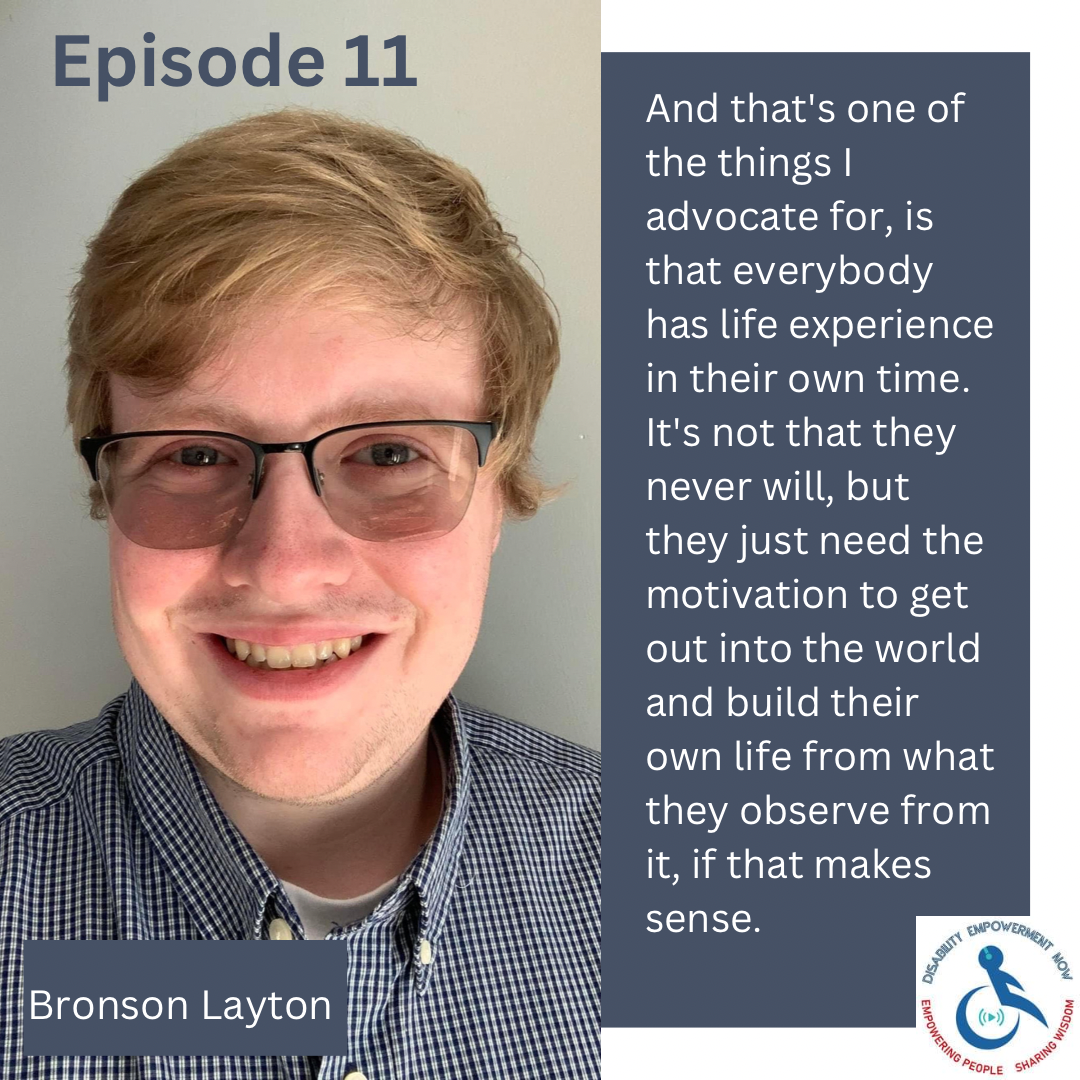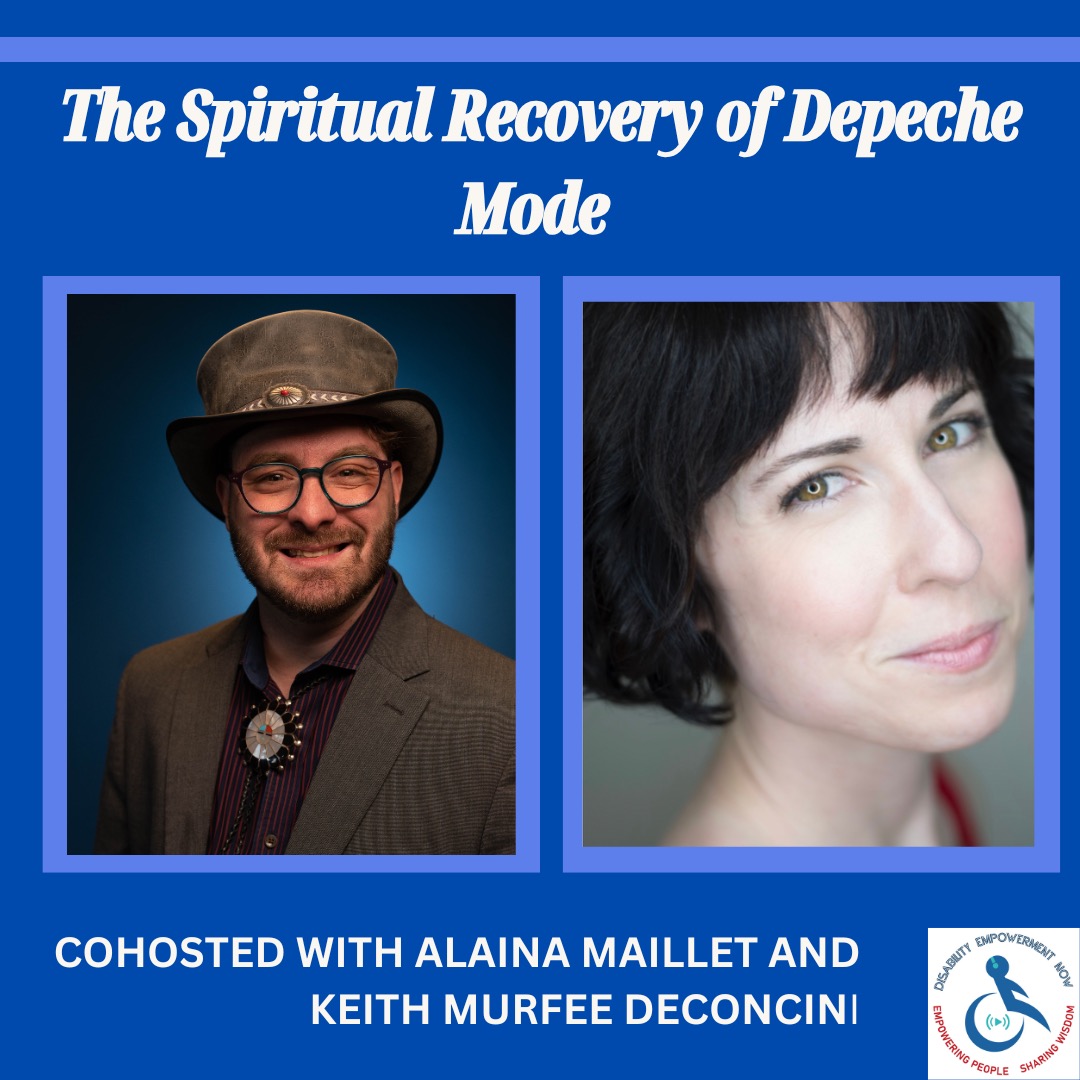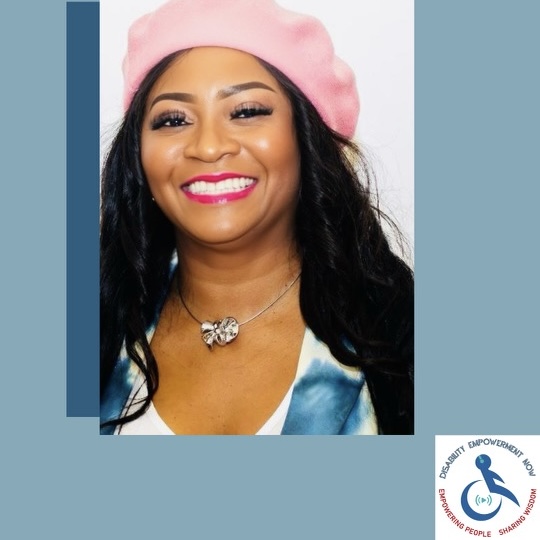[00:00:00] Speaker A: Foreign.
Hello, we're back with part two of our discussion.
And Joe, you go into college and you get your degree.
You have a presidential scholarship. You go to get your degree.
You talked about legacy at the very end of part one.
How did your legacy in getting your degree lead to the important work you do now?
[00:01:05] Speaker B: Yeah, no, I.
So my degree is in educational leadership, but I was able to focus on inclusive learning because that's the work that I do.
I think for the most part, what the legacy has become is possibilities, is how important it is to have support and to adapt and to have others help you through that training, and how accommodations are not a cheat sheet, but access to the same education that is being provided to everyone else and that it doesn't exist until we ask for it. So when we unmask the invisible disability of learning, we find so much growth.
Because I'm in a wheelchair, you can see that. But what you can't see is my cognitive disabilities and my processing and things of that nature and. And not having to explain that. So I think the legacy for me in that place is to be able to say it can be done. Education has always been important to me. So to now have a degree that teaches me how to educate others differently.
Others who think and do things differently is. Is something I don't think I even knew coming into this. And I can tell you that the hundreds of times I wanted to quit was met by other families with children who were just trying to finish K12.
And they promised that they were waiting for me at the finish line. And there's no way that I can quit because I am the example now for their children and for the work that they're doing. And so for me, you know, it was rewriting resilience, you know, and having to live life after, you know, a brain and spinal cord injury. Right. So it was very story driven. You know, I was focused on identity and adaptability and thriving while disabled. Whether education is your goal or just getting out of school or living independently.
[00:03:23] Speaker A: That's a good book title for your next book, Rewriting Resilience.
You can use that. I would like to see it as a.
Please continue.
[00:03:41] Speaker B: Well, I don't. I don't feel like I've done anything so incredibly special.
I do feel like getting the degree was mostly a personal goal. I do feel that having the degree has put me in a place that I've never been before, only because the expectations of people with disabilities are so low.
When I walk into a room or roll into a room, the expectation is that I'm deaf, dumb, and blind.
And so people would normally just scream so I could hear them, get really close, so I could see them and speak very slowly so that I can understand them. I still get padded on the top of my head when I go out sometimes, and it's like, look at you. You know, you're out and about and your hair is combed and you wearing makeup. And so the expectations are already low. And so coming into the room with a few letters behind my name sometimes resets the conversation and allows me to add value because they think so, not so much because I have value.
But getting in the room, I think, is enough to make space for others who are have been waiting at the door. And I know what that feels like because prior to finishing my terminal education, I was waiting at the door as well. And it's a shame that we have to do more, but as a woman of color with a disability, there's so many layers to the barriers that I hope that what it does is it, you know, takes the door off of hinges so that we can make the impact that we're all capable of making.
[00:05:27] Speaker A: And I. I hate that I have to mention that. And that's probably could be its own episode, unpacking or trying to unpack racism with disability. I mean, being pat on the head, it's something that I'll never go to, but no one should have to. And I'd been looking at your neck the entire time and the neck pledge you're wearing, it's very evocative on Judge and what I can see on it, it's like chains.
And I mean, we can unpack that topic in another episode.
Maybe we will, maybe we won't.
But in terms of starting your own companies, completing your degree, starting your own company, and what you do professionally now, where did that idea come from?
And did you find it hard to build it up, build yourself up to that level of what you do now?
Because it seems like you were always meant for what you do. But as we said in the last part, as we listened to your story, you had to do a lot.
[00:07:40] Speaker B: Yeah.
[00:07:41] Speaker A: To get where you are, and you didn't let it break you or your family.
And so how did you come about your invisible disability to come and becoming inclusion influencer?
I'm.
[00:08:10] Speaker B: I backed into that.
I just. Again, it was the. It was the thread and the ladder. I wanted to be a bridge for individuals with disabilities and their families and even their caregivers, because what I started to do after my injury was figure out what's my next.
What kind of job would I be able to maintain with the kind of health that can take me out overnight?
Where could I do a 9 to 5 where my manager would be so supportive that I could get. I can call out stuck, you know, not sick, but not be able to get from the top floor to the bottom floor into my car, because the house we were living in had no accessible exits.
And where could I do that?
And I started volunteering, honestly, with local organizations that were able to help me. And now I'm at a place where I can help support the work that they're doing. And so as I started to do that, I said, wow, I have access to all this information.
I don't need to create a whole new business.
Why don't I just be a bridge? I want to be the person that can help individuals that are newly disabled and diagnosed to pick up the phone and hear yes, 80, 80% of the time. Because prior to that, all their calls were no. Because it's so niche when you have a condition that you're looking for services to support you, and how do you find those? And so I was able to do intakes for everyone that had needs and say, you know what, Call Keith. He'll know exactly what to do.
Or, here's the organizations that can help you. They exist. They're just deeply embedded, you know, into this process that you couldn't possibly know about because this is new to you. And so that's what your invisible disability group is supposed to be. It's a bridge. It's a ladder. It's access to resources you may not have known existed. Once we get to know you and what your immediate needs are, it's kind of like a caseworker in a hospital. But after you're discharged, you don't always have access to that type of support. And I'm working with these individuals and these organizations every day. I'm on board.
I'm. I'm in meetings, and I'm traveling, and I'm, you know, at the courthouse, and I'm, you know, pushing policy and things of that nature. And so that's what your invisible disability group does. And because I also have an invisible disability that people can't see, I thought it was important to use those words because we have to fight harder when you can't see our pain. And it just wasn't fair to just be admitted into the. Into the spaces, because I'm in a wheelchair.
And then you have 85% of people with disabilities that have, you know, Invisible disabilities. So I wanted to make that clear and I wanted to grow that. And as a result of that, of course, people started asking me to speak and tell my story to help them in their major organizations. And so I did trainings and workshops. And it's just grown into something so beautiful and something so powerful, not because of who I am, but because of all the people who walk alongside me, who use the services and who live forward after a life changing event.
[00:11:50] Speaker A: So in case there are any listeners or viewers who want to become a inclusion influencer or the like, what would be some action steps that you could impart to them on how to get started on making not only their organizations and neighborhoods, but begin to make the world around them more inclusive?
[00:12:43] Speaker B: That's a really great question.
I feel like the first thing you have to do is to believe in your power and recognize that it's needed and that we all add value.
And I think when I learned that, and I learned that my trials can actually become triumphs. Like I've told so many people that the worst thing that happened to us has become the best thing to happen to others because we're willing to share it and to also to live our lives before we tell our stories.
We're not ready to tell our stories if we're still living in the pain and we can't communicated without tears or resentment.
So to get past that part of your story and to be empowered to share it with others is something that I still continue to work on. But to also get to know the community that I'm serving and to make sure that the community gets what they deserve as opposed to taking from the community, recognizing that this is where I live in love and making sure this is where you find strength. Not everybody needs to be a CEO of an organization or a founder of a nonprofit like Dream Right Hope University that offers scholarships to disabled college students.
It has to be a passion. It has to be something that makes you want to wake up in the morning. And when you find that that is where you belong. And I think that when all of us find where we belong, that we're like puzzle pieces and the world will shift and change and grow because we're where we're supposed to be.
And I feel like we should always have mentors, opportunities to tell our stories and opportunities to feel our feelings. We don't always get a chance to do that and to fight for what we deserve. We're in a time where things are being taken away and we should be taking it back and, and to align ourselves with others, and use our voices, you know, for lack of a better word, because our voices are so powerful and we don't recognize that until we lose it. And it can be taken away in more ways than one. So find someone that you admire, someone that you know, someone that seems to be going in a path that makes sense to you, and make sure that that person knows that you're around and you just want to maybe shadow them.
But we are all here to help and support each other. So I would just say if anyone feels like they want to start their own organization to help in a way where they see gaps, that they can reach out to me or someone else in our community and make it known. I asked for help. I, I'm a mentor and I'm a mentee.
So I know that there's a space for all of us out there. And to find it is the best journey in the world.
[00:15:47] Speaker A: Amen.
So I like to think that this podcast and video cats reaches both people with disabilities and those who are temporarily abled bodied, or tabs as we call them in our community.
And that's not a term of disrespect, it's just a fact of life.
Disability will more often than not touch everyone in some way, shape or form throughout their time on this planet. And the disability community, it's the only community you can join at any time in your life, for any period of your life.
I didn't get that choice.
I came out already disabled. Yay, me.
But I would like to think that the topics we talk about reach both communities and add my dad.
And we've talked about incredible stuff on these episodes that we have done together.
And hopefully this is only the start of our partnership.
What do you hope that people with disabilities take away from these episodes? And what do you hope that people who have yet to find, embrace, or discover their disabilities take away from the exhibit? So.
[00:18:11] Speaker B: Wow. Oh, wow. Again with a wonderful line of questioning.
Basically, you know, I like to talk about how I do my job the same way many people do, right? With commitment, creativity, and capability. I just do it differently because of, you know, my body and my brain.
And this is where I live, right? So my disability is not a limitation. It's, it's more of a lens that makes me more adaptive and intentional and inclusive and resourceful. And that's actually a good thing. I feel like I, I, I, I got some new gifts. And what I want people to understand is, you know, whether I'm consulting or speaking or building inclusive tech or leading a team I bring lived and learned experience, and. And that's something that so few people can do. And so when you bring that to the table, you recognize that I'm not here to inspire. I'm here to contribute and collaborate and innovate. And so I. I expect to be held right by the same standards of excellence and respect that everyone does with the accommodations that I need, without apology.
And so I hope and pray that anyone listening to this podcast, whether it's live or, you know, in replay, that you recognize that you have value and that you can contribute in the ways that your body works and in the ways that your body is capable of. And so we don't need to work twice as hard to feel like we belong. Right? We just need spaces that stop underestimating us. Right? So our access isn't a favor, you know, it's a right.
And so as we start to recognize that and live in that space, I think we now open doors for others, just like doors were open for me by people like you who were born with a disability and who took that and made the world listen.
And so make the world listen to you in whatever position that you're in right now. But recognize that we do exist. We're the largest people group in the country and we're not going anywhere.
So do your best to get to know us as we get to know you, because allyship is partnership. We can't do it without each other.
[00:20:38] Speaker A: Event. I would like to thank you extremely for sharing so much of yourself and your story on these episodes. And as I said, I hope he will come back. And then she's only the start of our partnership.
Before we sign off, if anyone wants to get in touch with you, what is the best way to do so?
[00:21:18] Speaker B: Absolutely so. Www.your invisibledisability.com is our website.
You can also reach
[email protected] we are on all platforms under Yvette Pegis. Feel free to reach out. Our team, our. Our team is actually built by a strong, small and mighty group of individuals with disabilities who are doing great things.
So feel free to find us on social media, on every platform and on our website, especially those who are newly disabled and diagnosed.
We'd love to be able to support you on your journey to recovery and make the world greater because of you.
[00:22:02] Speaker A: Thank you. And I look forward to talking to you again very, very soon.
[00:22:10] Speaker B: It's been my pleasure. Keith. Thank you for having.
[00:22:22] Speaker A: You have been listening to disability empowerment. Now I would like to thank my guests.
You are listener and the disability Empowerment team that made this episode possible.
More information about the podcast can be
[email protected] or on our social media at Disability Empowerment Now.
The podcast is available wherever you listen to. Podcasts are on the official website.
Don't forget to rate, comment and share the podcast Cats. This episode of Disability empowerment knowledge copyrighted 2,024.


